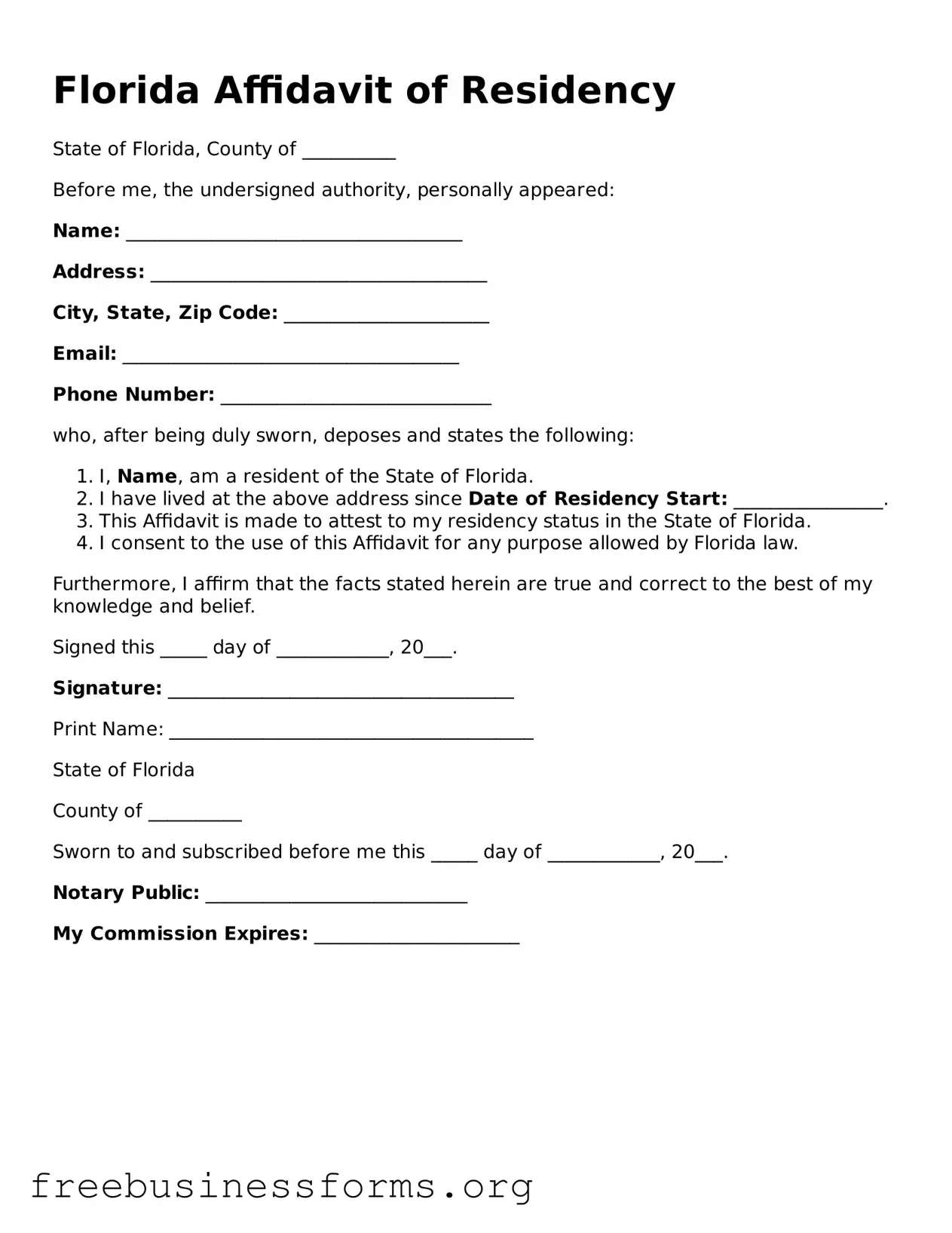Blank Affidavit of Residency Template for Florida
The Florida Affidavit of Residency form serves as a legal document used to verify an individual's residence within the state of Florida. This form is often required for various purposes, such as enrolling in school or obtaining certain government benefits. Understanding its significance and proper usage can streamline processes for residents and officials alike.
Open Form Here

Blank Affidavit of Residency Template for Florida
Open Form Here

Open Form Here
or
↓ PDF File
Quickly complete this form online
Complete your Affidavit of Residency online quickly — edit, save, download.